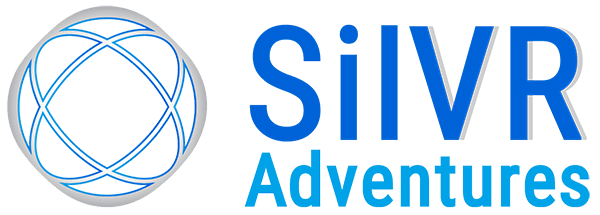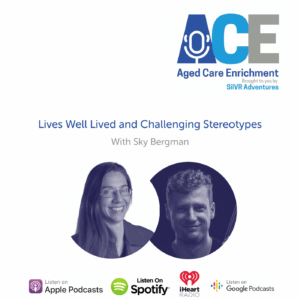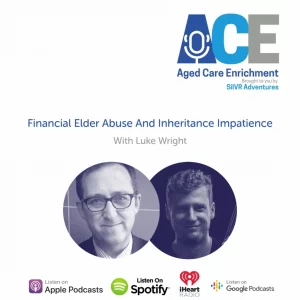Clyde Campbell is the CEO of the Shake it Up Foundation, a not for profit helping rive innovative Parkinson’s research in Australia. He joins the show to talk about the journey of receiving and accepting his diagnosis, channeling his energy into finding a way to “slow, stop or cure” the disease, and Shake it Up’s partnership with the Michael J. Fox Foundation in the US.
As you’ll hear Clyde is exceedingly positive about his life and future with Parkinson’s, and particularly the positives that have come out of his diagnosis including with his family.
This interview was released as one half of a double episode on Parkinson’s, alongside an interview with Wesley Della Volla.
Transcript
Ash de Neef: Great. Clyde, thank you so much for joining us on the show today.
Clyde Campbell: You’re Welcome
Ash de Neef: It’s great to have you here, and we’d really like to talk about Parkinson’s disease and your experience with that. But maybe we can wind it back a little bit to tell us your story and your journey with Parkinson’s.
Clyde Campbell: Yeah, my journey started around 12 years ago now. I got up to speak as CEO for our robotics company that we own and the notes in my hands started to shake. Really unusual for myself. Half my head’s going, “toughen up you must be nervous”. And the other half, the head is going, “what the hell is happening here?”
So I walked the room and I just couldn’t get myself comfortable, the notes continued to shake. No one else I thought saw it at the time, it was just something out of the blue. So I got all the way through the day and spoke to my wife at the end of the day and said, “look if anything happens, this is what I’ve had symptoms of today.”
So that Monday morning was off to the doctor. And then really just to try and understand a bit more about what the symptoms were. Cause I, I didn’t know anything about Parkinson’s. as such at that time.
Ash de Neef: Yeah. Wow. So you jumped on it pretty quick then.
Clyde Campbell: Yeah. I wanted to be able to understand what the issue was, because it’s something that was out of the ordinary for myself. And my diagnosis was quite unusual. it was very quick. But that Monday morning went to see the doc and he said, “oh look Clyde, I’m gonna have to refer you to a neurologist. And I said, “look just hit me with what do you think the problem is.”
And he said, “you look like you’ve got young onset Parkinson’s”, which was a hell of a shock to myself. And then we had to work through what the symptoms and what the progression would be from there
Ash de Neef: Well, Okay. So after you saw neurologist, do you get a diagnosis and what was the period like immediately afterwards and the adjustment to it?
Clyde Campbell: I look for myself it was hell of a shock to be able to be diagnosed. The neurologist said at the time he said, “look Clyde the good news is you’ve got Parkinson’s. Because the other diseases were far more life-threatening and far more debilitating the Parkinson’s”. And it’s still not a fun disease to have by any means, but was the best of a bad bunch
Ash de Neef: Yeah. Wow. So as your kind of you’ve received the diagnosis and you’re overcoming the shock what were the initial kind of changes that you started to make in your life?
Clyde Campbell: I promised myself two things before I actually could leave the neurologist appointment. When I walked out the door, I said, “look before I put the key in the car, I’ve got to promise myself I can answer two questions. And one of those is can I accept I’ve got Parkinson’s?” And that was pretty easy for me.
I said, “yep. I can accept it. I don’t like it, that doesn’t mean I’m going to give up, but I can accept it. Because acceptance for myself as the basis of, all happiness, you need to understand where you are at to be able to work on where you want to be. And then the next one was, what are we going to do about it?
So for myself, it was really crystal clear. I was to find a cure. And next time I’m going to probably wish for something a little bit simpler.
But that was a, the two things that I promised myself I had to decide before I could actually put the key in the car and we can move on.
Ash de Neef: Yeah, Wow. So that kind of spearheaded you and pushed you along into your work with Shake it Up. Can you talk about the founding of that organization?
Clyde Campbell: Yeah, that really pushed us into what, if we’re going to find a cure we had to find people that could do the research. I’m a great believer in Australians have got huge capability. So I had to look around Australia and I found some fantastic researchers, all doing different research in Parkinson’s – in my humble opinion, all under funded.
But if we did fund them at a higher level, how do we make sure it was strategic? And we weren’t just doing it to make ourselves feel good and not make a difference in the years to come. So I learned a lot about what research we had operating around Australia. Then trying to group that together and say, how do we strategically go after it?
I was actually working in the United States at the time and a project in our robotics business. And I was in the Nevada desert, we we’re doing a solar job over there in robotics. And I teed up a meeting at the Fox foundation in New York City. Went over to New York City and sat down with them for two hours and just come away going they’re the guys that can help us. There were no aires and graces, they just completely focused on how to slow to stop and cure Parkinson’s.
And that was if the start of the Shake it Up Foundation. What we were looking for there with Michael J. Fox is, how do we actually bring his process over to Australia? But being such a small part of the world in gross domestic product where we need to look at what can we do not to slow the Fox foundation down.
It took us 12 months. Their CEO said, “look Clyde, you convinced me that we should work closer together, but you’ve got to convince the, board because what you’re asking, we’ve never done before.” So my wife and myself went over to New York City and presented to the Michael J. Fox foundation board. Got up and spoke in regards to what we were wanting to do, how are we going to do it, And Michael stood up after our presentation and said, “Clyde, I can see you got a purity of motive. You’ve got my vote.” So with that I knew I had the other 40 votes in the room.
Ash de Neef: That’s a good start. He might be the linchpin there.
Clyde Campbell: Yeah. Look, he’s a fantastic guy. The foundation is such a large organization that Michael plays a part in. But it’s just such a big operation now, it’s the biggest funder of private research in Parkinson’s anywhere in the world.
Ash de Neef: And did you find that you said that Australia had, a certain amount of innovative research. Did you find that you’re able to bring Australian research into the fold for he Fox foundation there?
Clyde Campbell: Yeah. What we’ve found initially is the researchers didn’t think Michael J. Fox would fund very much in Australia. And to that point they hadn’t funded a lot of things. So what we needed to do is get our researchers to be able to apply. And also communicate better with the Fox foundation to ensure that we’ve got better acceptance in their grant process.
That’s 12 years ago now since then we’ve had over 50 projects up and running in Australia, 13 different research institutes. So significant engagement across Australia and Fox have funded half of that with ourselves. So there’s been over $10 million worth of funds going.
Ash de Neef: And when you’re talking about stopping the disease or curing the disease, what does that exactly look like? Is that the end of symptoms is at the end of degeneration? What is that?
Clyde Campbell: Yeah. So we were after holy grail of curing the disease, but what does that mean?
So Parkinson’s when you normally see the symptoms of rigidity or tremor come on, you’ve lost about 70% of the dopamine producing cells in the substantia nigra in the back of the brain.
But if we can find that earlier than that, say, if you’ve lost 20, 30, 40% of the actual dopamine producing cells, and we understand that person’s got Parkinson’s and we slow it down. As long as we don’t get below the 70% degradation people aren’t going to even have the symptoms of Parkinson’s. So if we can slow the disease, find it early and slow it down, we don’t need to stop it to cure it. Because we already can slow it down enough, not to have any symptoms.
So that’s the early days part. But if people have already got the symptoms and they’ve lost 70% of their dopamine producing cells, how do we stop the actual continuous death of those cells? Which is critical to people have been diagnosed with Parkinson’s because they’ve already got that cell death.
So we’ve got other drugs that are working on how to be able to stop the disease progressing. And then how do we be able to improve the actual cells that are there? Can we regrow the cells, or can we stimulate the cells that are there to be able to produce more dopamine. To do what we wanted to do and allow people to live a normal life?
Ash de Neef: Wow. Okay. So are the sort of needs for people with different stages of Parkinson’s that might be different for people without.
Clyde Campbell: Look, it’s such a diverse disease. Normally I suppose in the, the the symptoms people see outwardly uh, normally the tremor or rigidity.
Clyde Campbell: So if we work on the rigidity component first. If people are getting freezing incidences where they can’t get their feet to actually move. So they’re coming up to a doorway or up to a pedestrian crossing, and their feet just freeze. they can’t get them to move. So we’re working with the Fox Foundation and also NeuRA research in Sydney that actually have a vibration device. That actually vibrates on the side of the person’s leg with vibrating socks and it actually gets the rhythm back in, so the person can actually get back into a beat.
And then the sensors and the accelerometers and so on in the actual socks can actually tell when people are walking, running or freezing. So that goes back to the iPhone which is pretty easy to connect back to, and uh, we’ve got connectivity to the rest of the world. So, Those areas of research we’ve got practically happening in Australia, right as we speak today.
Ash de Neef: So as they, for example, they approach a traffic light, a pedestrian crossing, sorry. And they stop. Then the socks will detect that stopped and they’ve frozen, or how does it detect the locking?
Clyde Campbell: You can do a proactively where we would actually leave the actual vibration on so that it stops them freezing effectively. So that the you’ve got these little vibrating motors, but trying to be about as big as a pencil.
So they’re quite small just vibrate next to the actual ankle. So you turn them on or off from your iPhone. So the idea is to be able to proactively do it so that you actually turn those on when you’re out walking around so that you can not freeze.
But then in future time, can we actually sense that the person has gone from a walking state to a frozen state, and then turn it on automatically?
Ash de Neef: Wow and have you worn these socks before? What does that feel like?
Clyde Campbell: I have I’ve been using them as part of the actual early days trials. Yeah, I’m very happy to be able to assist in any way and being able to work with our researchers. So yeah, it’s an interesting feeling. I don’t get freezing of gate, i’ve got, more of a tremor dominant Parkinson’s. So the freezing of gait doesn’t affect myself in that area. But other people that I’ve seen working with our science scientists and working with the researchers have had some fantastic results using them.
Ash de Neef: Awesome. And another area I can imagine that people living with Parkinson’s might need a bit of extra support, could be their emotional journey. And I know you were quite quick to accept that you had Parkinson’s whether you liked it or not, but maybe helping people approach it in a positive mindset.
How can people do that do you think?
Clyde Campbell: Everyone deals with their Parkinson’s in a different way. For myself, I’ve found it very easy to be able to say, “look, let’s go and share it with everyone and tell people what I have”. Where most people don’t want anyone else to know they’ve got Parkinson’s. I just found it easier to be able to be out there and to say, “look, this is what it is, this is how I’m trying to deal with it.”
But I can fully understand a lot of other people just want the privacy. They want to be able to work on their symptoms. And can they actually live a normal life without people knowing that they’ve got Parkinson’s.
But yeah, the emotional support is very important. What we want people to be able to do is make sure they can get out and about. Because that’s the first thing people with Parkinson’s symptoms quite often do is don’t go out, because they’re embarrassed that people may see them tremoring or frozen. And that becomes an even worse because you’re then more anxious next time you go out. Because you’re not as experienced to being able to interact in public places. So it’s one of those self fulfilling prophecies, I suppose, that you just need to try and get yourself out and about.
Exercise i’ve found being critically important to everyone with Parkinson’s – to be able to get out and exercise. I exercise for an hour every morning before I do anything. Rise your heart, whether it be running, paddling, biking, swimming whatever you can do. And everyone can do it obviously at different levels, depending on what their age and what their actual condition with Parkinson’s has matured to.
Ash de Neef: Great. So you could see that maybe some people might need a little extra support getting out there early in the morning, like you are. Or even just someone to go with them might be a nice help.
Clyde Campbell: Most definitely someone to go with them or someone to support them, and also just someone to talk to. I’m very fortunate I’ve got a very strong family group around me with three kids, a fantastic wife great extended family, but that doesn’t happen for everyone.
So it’s important for people not to get isolated with Parkinson’s as well and ensure they can still be part of a community.
Ash de Neef: Hmm. I’m wondering if you have any message for perhaps health care workers who might be helping people living with Parkinson’s.
Clyde Campbell: Probably the first one would be thank you.
Ash de Neef: Yeah.
Clyde Campbell: It’s not an easy task to be able to be a carer for anyone that’s got an illness, especially someone that’s sort of neuro debilitating illness such as Parkinson’s. Thank you for the opportunity to be able to increase people’s opportunity to get out and live a normal life.
And just how do they work with the Parkinson’s patient? Cause everyone’s going to have a different disease trajectory as to how it continues to worsen in Parkinson’s. And how do you get around some of those areas that you may not have been able to do in the past?
Some people I’ve found that have struggled most with Parkinson’s to the people that are highly achieving athletes or business community people, because they put their performance level up to such a high standard and they expect to hit it. And all of this no matter what we’re doing, you can’t do things in your fifties that you could do in your twenties on the sporting field. Whether that’s got anything to do with Parkinson’s is another thing altogether.
But Parkinson’s takes away some of those areas that people may have been very proficient at in the past.
Ash de Neef: So it sounds like there might be something of a grieving process for that loss there.
Clyde Campbell: It is, it’s a grieving and acceptance process to be able to get through and how to be able to look at what is on the other side? You know Michael J. Fox is just such a positive guy in regards to that. What has Parkinson’s given him back in his life that he wouldn’t have had if he didn’t have Parkinson’s.
And Michael said he’s very fortunate to have Parkinson’s – I wouldn’t go quite that far. But yeah, it is what it is, and we just need to work on how do we actually live with it and make sure we make the best of everyday.
Ash de Neef: Hmm. Can you maybe share some things that you’ve gained out of your journey with Parkinson’s.
Clyde Campbell: Oh, look, we’ve gained a lot with our kids, you know how they understand people, how they deal with different problems. How they make sure that they can understand illness and how to be able to work with that.
When we first told our kids I had Parkinson’s, we sat down and had had our normal family chat, and I said to the guys, “do you have any questions?” And Joshy who was only probably eight at the time our son said, “oh dad are you okay?” And I said, “mate I’m fine. I’ll definitely let you know if I’m not”.
Zoe who you could see was just mulling it over, and had been thinking a hell of a lot about it said no, she didn’t have any questions. And Phoebe who was only three at the time, said “no I don’t have any issues at all”. But what we’ve found is that two weeks later, Zoe came up to me and said, “dad are you going to die?” And her thought with people that had a disease is that they going to pass away.
And so that was really a distracting part for herself. And then we had to put an understanding of what Parkinson’s was and how it actually affected people, so we could move on and live a normal life.
Ash de Neef: Yeah that’s fantastic. Clyde where can people find out more about Shake it Up in the work that you’re doing?
Clyde Campbell: The best way to find out about ourselves is our website, shakeitup.org.au. There’s plenty of areas there you that can get newsletters on a monthly basis, that’ll tell people what we are actually doing in the community, and what we’re doing research wise.
So yeah shakeitup.org.au is the best way to get hold of us.
Ash de Neef: Perfect. And is there anything else you wanted to touch on or let listeners know about before we leave it there for today?
Clyde Campbell: There’s nothing specific I suppose. More just in regards to ensuring people can see there is a positive future for people with Parkinson’s. We are working on ways to slow, stop and cure the disease, but we need to get out there and ensure we put in our best effort every day, ourselves.
Work on your exercise, work on your mental health, and ensure you have a positive focus towards your future.
Ash de Neef: Fantastic. Clyde, thank you so much for joining us on the show.
Clyde Campbell: Thank you, and for your listener’s time, it’s really appreciated.




